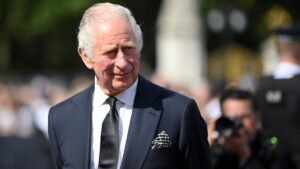As development aid from the United States and Europe continues to shrink, policy experts and advocacy groups are urging the World Bank to take further action to bridge the growing financing gap facing vulnerable countries. Specifically, they are calling on the Bank to lower the equity-to-loan ratio of its main lending arm, the International Bank for Reconstruction and Development (IBRD), to unlock billions in additional funding.
Eric Pelofsky, vice president of the Rockefeller Foundation, proposed reducing the IBRD’s equity-to-lending ratio from 18% to 17%—a move he said could release between $30 billion and $40 billion in new lending capacity. He emphasized that the change would not require additional taxpayer contributions or place any strain on the Bank’s capital reserves.
“These funds could help countries facing urgent budget shortfalls maintain core public services like healthcare, water access, and sanitation,” Pelofsky said. He also proposed that the World Bank consider offering short-term, low-interest loans to struggling NGOs, helping them sustain operations and transition to longer-term funding models.
The World Bank has already reduced its equity-to-loan ratio by one percentage point in both 2023 and 2024, following recommendations by an independent G20 commission. These reforms were part of a broader strategy to enhance the institution’s agility in responding to global development needs.
The pressure to expand lending comes as foreign assistance declines sharply. Since President Donald Trump began his second term in January, his administration has enacted steep cuts to foreign aid in line with his “America First” policy priorities. Several European nations have followed suit, significantly reducing their own development budgets.
Pelofsky warned that continued inaction could have severe humanitarian consequences. “Inaction will have concrete consequences,” he said, citing studies indicating that cuts in U.S. foreign aid could put millions of lives at risk.
The proposal has garnered support from advocacy groups such as Jubilee USA Network. Its executive director, Eric LeCompte—also a United Nations adviser—called on the World Bank to act swiftly. “With the deep cuts we’ve seen from the U.S. and Europe, the World Bank has the tools to help fill this aid gap,” LeCompte said. “It should make this decision without delay.”
The call adds momentum to a growing movement within the international development community urging multilateral institutions to step in where traditional aid donors have pulled back.



























